'Based on a true story' movies that really distorted the truth
Warning: just because a movie says it’s “inspired” by a true story, that doesn’t mean what you’re seeing has any relation to the truth. It’s a trick used by several films as a sort of honesty get-out clause: heck, even Fargo – a completely fictional movie – opens with the caption “THIS IS A TRUE STORY”.
But when the events are real and the movie takes presents, shall we say ‘alternative facts’, like these movies did, that’s when you have a real problem on your hands…
‘Patriot’s Day’ (2017)
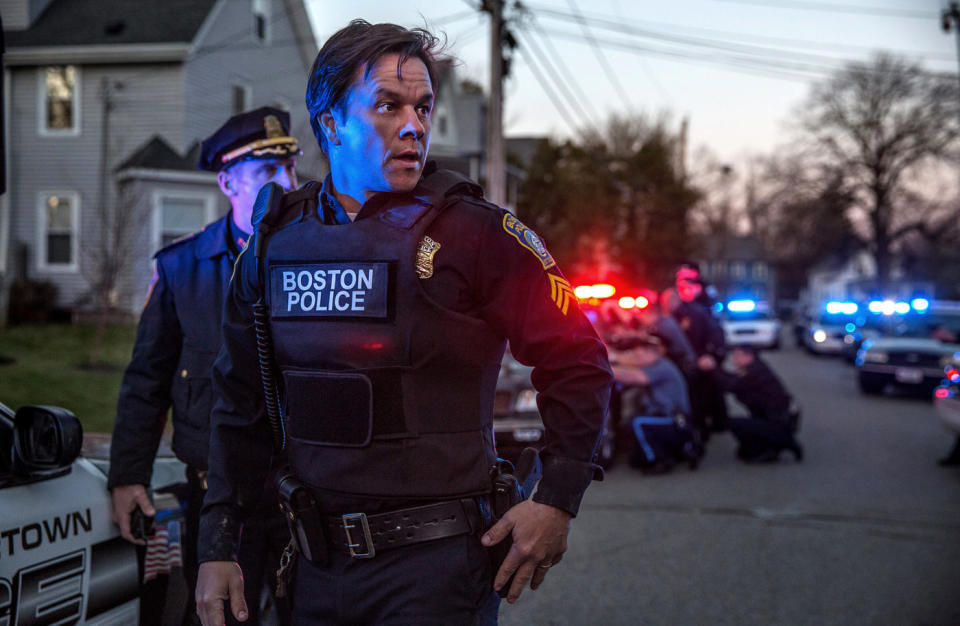
Director Peter Berg likes making movies with Mark Wahlberg based on recent events: not content with ‘Lone Survivor’ (2013) and ‘Deepwater Horizon’ (2016), he’s now made a dramatisation of the 2013 Boston bombings – a terrorist attack so recent, Bostonians can still hear the ringing in their ears.
10 surprisingly scientifically accurate films
Actors who gave up on accents
Most expensive deleted scenes
The problem is that ‘Patriot’s Day’ takes a liberal approach to the truth. Wahlberg’s character is entirely fictional, even though there were no shortage of real heroes on the day, and Katharine Russell, the widow of bomber Tamerlan Tsarnaev, claimed the movie implied her guilt by association. The Boston Globe gave the film a damning review: “At best, it’s unnecessary. At worst, it’s vaguely insulting.”
‘U-571’ (2000)
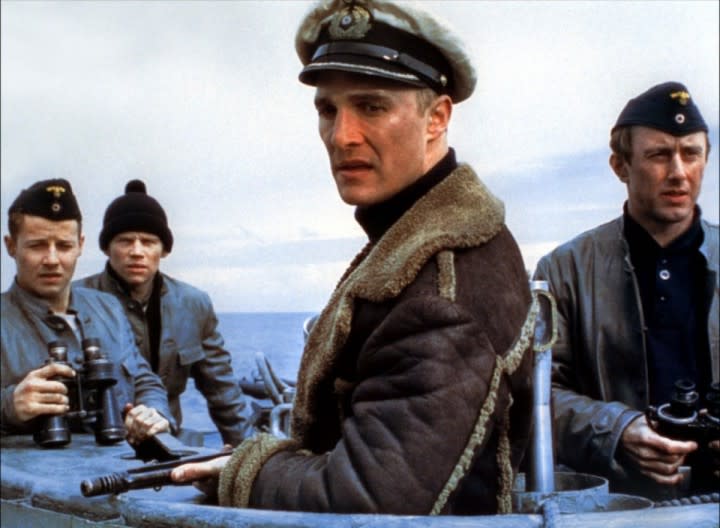
This World War II U-boat drama found itself in hot water after trying to suggest that it was the heroics of American sailors that helped decode the Enigma machine, not British (in reality, of the fifteen times codebooks were captured by Allied forces, thirteen of them were by Brits). Then-PM Tony Blair called the movie “an affront to British sailors” and the movie’s screenwriter, David Ayer, later agreed: “It was a distortion…a mercenary decision… to create this parallel history in order to drive the film for an American audience. Both my grandparents were officers in the Second World War, and I would be personally offended if somebody distorted their achievements.”
‘Argo’ (2012)
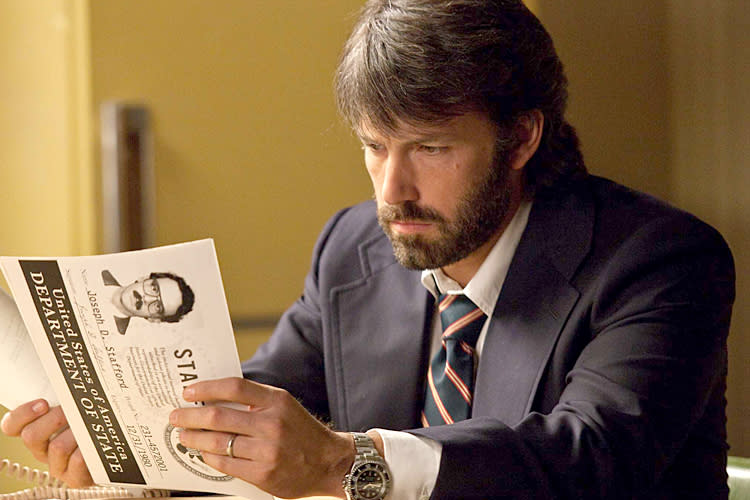
Even overlooking that fact that extremely-white-man Ben Affleck was supposed to be playing very-much-Mexican agent Tony Mendez, ‘Argo’ still managed to cause controversy with its plotline, which – again – gave American heroes dues that should have been distributed elsewhere. Victor Garber’s Canadian ambassador Ken Taylor has been called the real hero of the story, and Canada’s efforts to free the hostages in Iran were seen as crucial to their safety, but they were marginalised in the film – because Hollywood sells, baby. Former US President Jimmy Carter criticised the movie, saying: “90% of the contributions to the ideas and the consummation of the plan was Canadian. And the movie gives almost full credit to the American CIA.” Affleck was forced to amend the movie’s postscript text to acknowledge Canada’s role in the hostage saga.
‘The Patriot’ (2000)
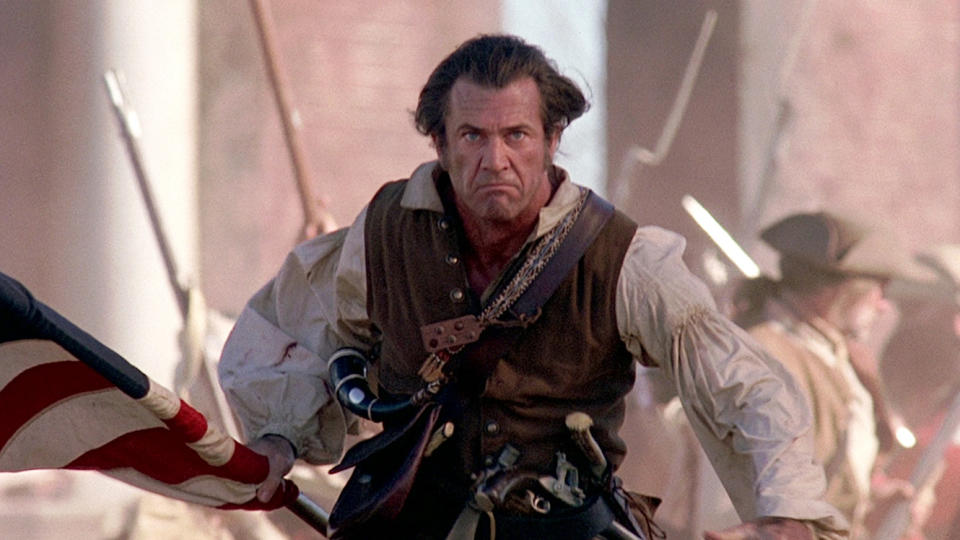
Roland Emmerich has never been a director who feels the need to be a slave to realism, but his 2000 historical war epic ‘The Patriot’ – what is it with that word? – contained too many inaccuracies and liberties to be taken lying down. For starters, Mel Gibson’s righteous family man turned revolutionary was an amalgamation of many real-life men, including militia leader Frances Marion – but history shows Marion killed Cherokees for fun and regular raped their slaves. Furthermore, one scene which showed British redcoats rounding up women and children and killing them by setting their church on fire just never happened. The movie avoided any mention of slavery at all; Spike Lee said: “’The Patriot’ is pure, blatant American Hollywood propaganda. A complete whitewashing of history.”
‘American Sniper’ (2014)
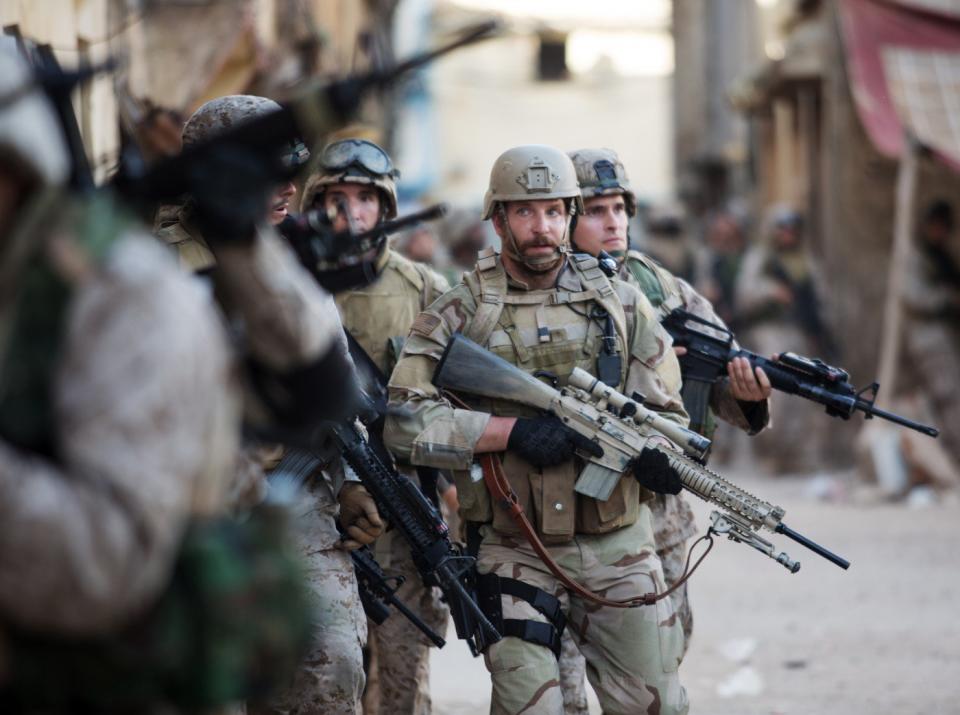
Clint Eastwood turned his lens to Navy Seal Chris Kyle and his astonishing kill record. The movie was beloved by right-wing Americans and gun nuts, but one thing it didn’t do was delve into Kyle’s actual story – in fact, not only did it omit certain troubling aspects of Kyle’s personality (he once claimed he shot 30 looters during Hurricane Katrina), it straight-up lied about others. The movie suggests that rival sniper Mustafa was a consistent adversary throughout Kyle’s career, but Kyle’s own book only mentions him in one paragraph. The hilariously fake baby that Kyle cradles is just the tip of the fake news iceberg.
‘A Beautiful Mind’ (2001)
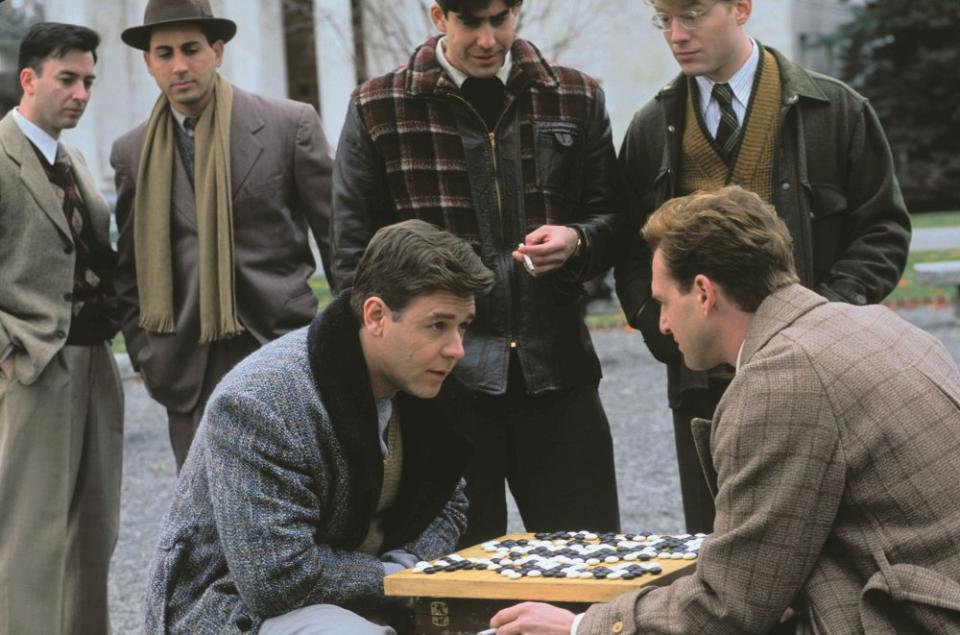
Ron Howard did a pretty shabby job of sticking to the facts when bringing the life of Nobel Laureate John Nash to the screen. For starters, Nash never worked at the Pentagon, as the movie claims, nor did he work at Wheeler Laboratory at MIT, because it does not exist. The movie pushes him as a family man, but Nash actually had a child out of wedlock and ended up abandoning the mother. Nash also had homosexual experiences while working in California, but that was one of many plot points that was deemed surplus to requirements for Ron Howard’s Oscar-bait narrative.
’21’ (2008)
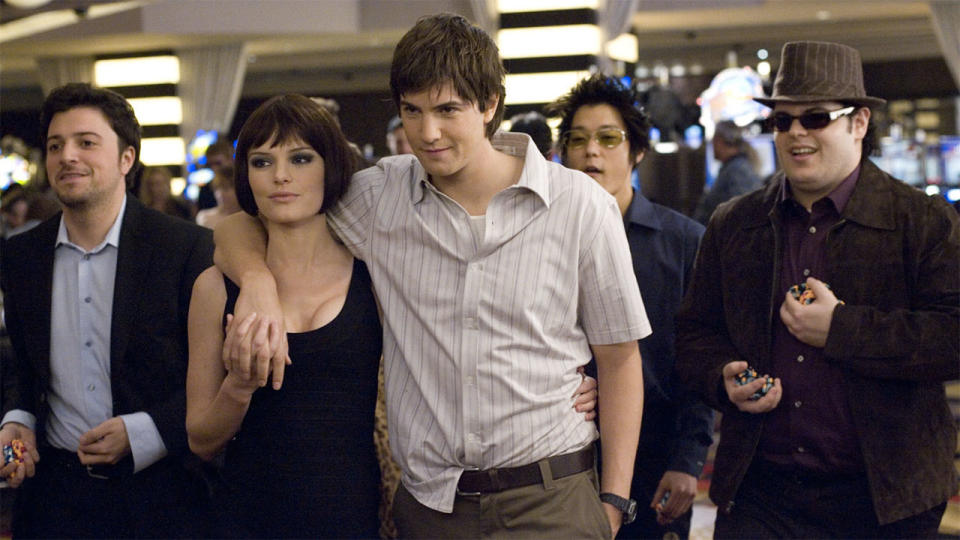
The act of Hollywood whitewashing is not a new phenomenon by any means – it’s just much harder for movies to downplay the achievements of minorities with today’s media. But no one batted an eyelid in 2008 when true story ’21’ told the story of a group of MIT math geniuses who took down a casino by counting cards but failed to note the small detail of them all being Asian in real-life (Jim Sturgess and Kate Bosworth, last time we checked, are Caucasian). Sturgess’s character was never beaten up in a bathroom, as depicted in the movie, nor did he fall in love with a teammate – that’s pure fiction.
‘Rush’ (2013)

The true story of ‘Rush’ – the rivalry between Formula 1 drivers James Hunt and Niki Lauda – already made for the perfect sports movie: it had ups and downs, twists and turns, injuries and comebacks, heroes, villains and even a nail-biting final race that came down to the wire. It’s just a shame that the entire film – another Ron Howard special – is based on the falsehood that Hunt and Lauda were enemies. Though they occupied different ideological spaces and had a healthy rivalry on the track, the pair were actually good friends in real life and once shared an apartment, which you don’t see in the movie. Still, it makes for a more exciting film, so we’ll give it a pass.
‘The Blind Side’ (2005)
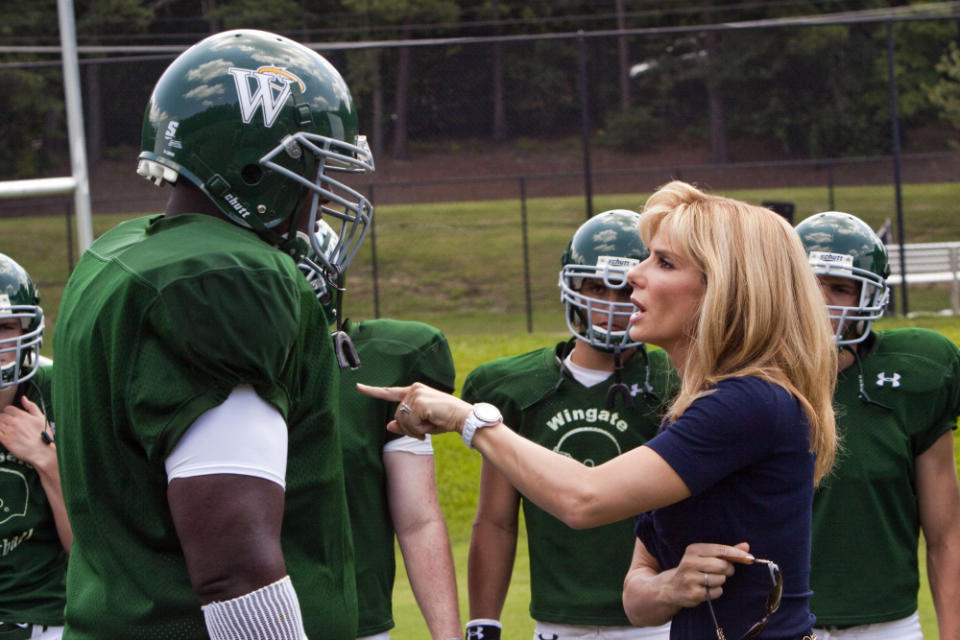
The true story at the centre of ‘The Blind Side’ got buried in the rush to make an Oscar-winner out of star Sandra Bullock, inadvertently sidelining the achievements of the real MVP, Michael Oher. Though it’s true Oher was adopted by the wealthy Tuhoy family, the film makes it appear that Oher was taught football by Bullock’s character. “I’ve been studying the game since I was a kid!” Oher later wrote. “I felt like it portrayed me as dumb instead of as a kid who had never had consistent academic instruction and ended up thriving once he got it. Quinton Aaron did a great job acting the part, but I could not figure out why the director chose to show me as someone who had to be taught the game of football.”
‘Captain Phillips’ (2013)
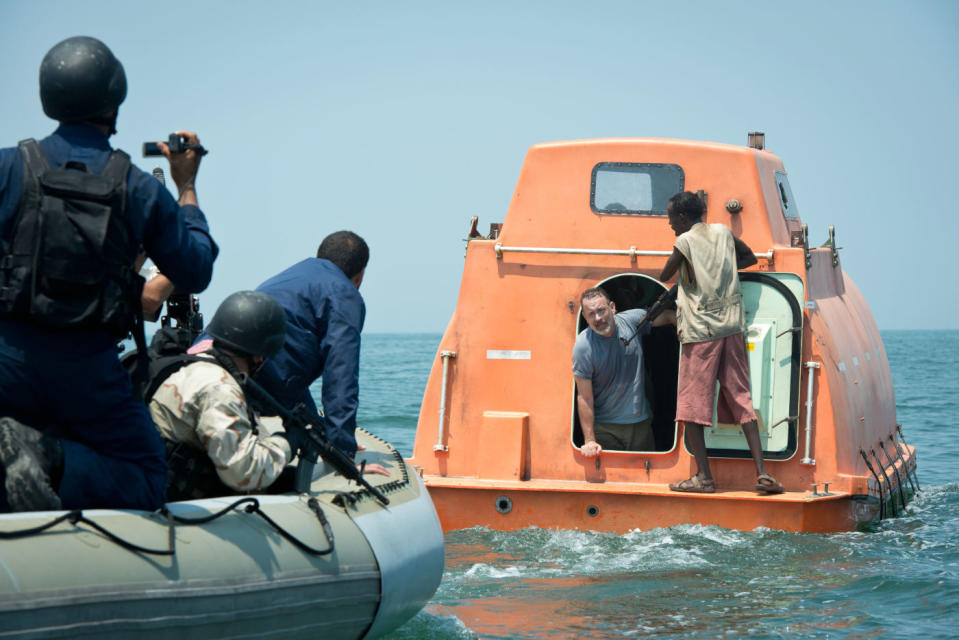
Tom Hanks won new plaudits for his role as the sea captain at the centre of this white-knuckle hijacking drama, but according to his shipmates, Captain Phillips wasn’t exactly the hero the movie portrayed him as. One crew member admitted that Phillips practically invited a hijacking attempt by Somali pirates by sailing too close to the coast and ignoring regulation, claiming “no one wants to sail with him”. Email correspondence showed Phillips received warning about pirates and was told to stay further than 600 miles from the coast, but the Maersk Alabama was captured less than 300 miles from land. Which kind of makes it a different movie entirely.
Read more
The unglamorous truth behind sex scenes
11 films on the wrong side of history
Actors who were forced to star in movies

 Yahoo Movies
Yahoo Movies 
